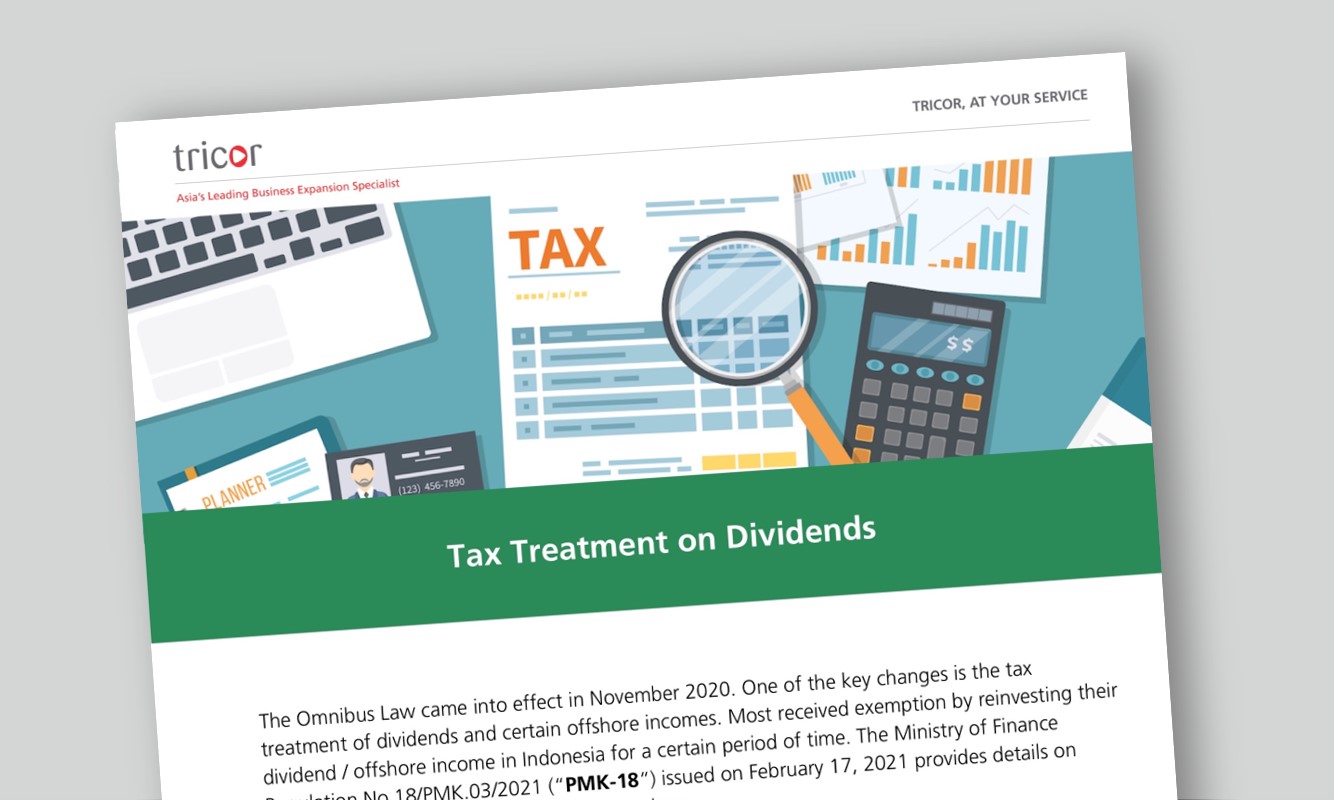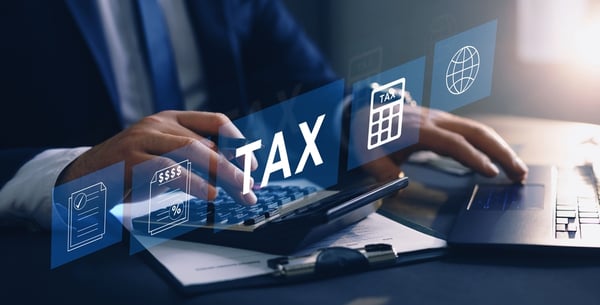The Omnibus Law came into effect in November 2020. One of the key changes is the tax treatment of dividends and certain offshore incomes. Most received exemption by reinvesting their dividend / offshore income in Indonesia for a certain period of time. The Ministry of Finance Regulation No.18/PMK.03/2021 (“PMK-18”) issued on February 17, 2021 provides details on these reinvestment requirements and procedures.
1. Exemption Rules
The exemption rules for dividends and offshore income under the Omnibus Law can therefore be summarized as follows:
- Domestic dividends received by:
- Domestic corporate taxpayers – no requirement
- Domestic individual taxpayers – reinvestment required
- Offshore dividend received by domestic taxpayer, from:
- A listed company – reinvestment required
- A non-listed company – reinvestment required, at least 30% from Profit After Tax
- Offshore income received from:
- Permanent Establishment (PE) – reinvestment required, at least 30% from Profit After Tax
- Active income to non-PE or subsidiary – reinvestment required
Please note that for income where there is no threshold on the reinvestment requirement, only the reinvested income is exempted from tax. The remaining distributed income is subject to tax in Indonesia.
For income where the reinvestment requirement provides a 30% threshold, the taxpayer can enjoy a full exemption (i.e. on the reinvestment amount and the remaining PAT) if the threshold is fulfilled. If the reinvestment is less than the threshold, the taxpayer must pay Income Tax on the spread between the actual investment amount and the 30% threshold in order to enjoy the exemption on the reinvestment amount and the remaining 70%.
2. Reinvestment requirements
The qualifying reinvestments are as follows:
- Government bonds (including under sharia principles);
- Bonds/sukuk issued by State-Owned Entities’ (SOEs), State-Owned financing companies, or private companies whose trading is under Financial Services Authority’s (Otoritas Jasa Keuangan) supervision;
- Financial investments in a “perception bank” including a sharia bank;
- Investment in infrastructure under a Public Private Partnership scheme;
- Investment in real sector (sektor riil) subject to a Government priority;
- Indonesia shareholding in a newly established or existing company;
- Cooperation arrangements with the Indonesian Sovereign Wealth Fund (Lembaga Pengelolaan Investasi);
- Lending to small and micro businesses in Indonesia; or
- Other legal forms of investment.
The holding period is set at 3 years with the following mechanism:
- The taxpayer must invest the dividends or offshore income in the qualifying investments by the end of the 3rd or 4th month after the end of the fiscal year for individuals and corporate taxpayers, respectively.
- The investment must be held for a minimum of 3 years from the fiscal year when the dividend or offshore income was received or earned.
- The investment cannot be transferred, except to some other type of qualifying investment.
3. Foreign Tax Credit (FTC)
Under the Omnibus Law, foreign taxes paid for exempted income will not be credited or deductible or refunded. If the offshore dividend and other income is not fully invested in Indonesia, the income is partially taxable in Indonesia, and the FTC is allowed on a proportional basis.
4. Exemption mechanism
The exemption mechanism requires reporting the income as non-taxable in the Annual Income Tax Return.
For domestic dividends, the Indonesian company distributing the dividend does not need to withhold tax on the dividend.
If a domestic individual taxpayer does not meet the reinvestment requirements, the dividend is subject to Income Tax when received or earned and must be self-remitted by the individual by the 15th day of the month following the dividend being received or earned. Individual taxpayers who have obtained validation on the tax payment slip are considered to have reported the income in the Monthly Income Tax Return in accordance with the validation date.
5. Realization report
The relevant taxpayers must submit a realization report by the end of the 3rd or 4th month following the dividend being received or earned for individual and corporate taxpayers, respectively. This realization report must be submitted for 3 years starting from the fiscal year when the dividend or other income was received or earned.
For more information please kindly contact your Tricor representative.








